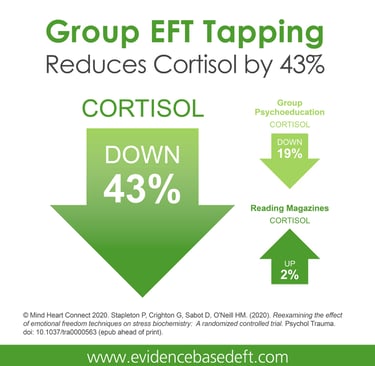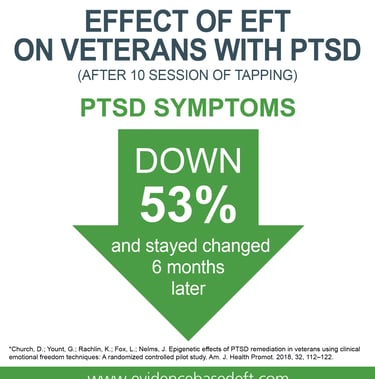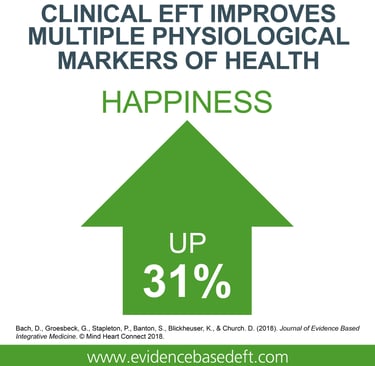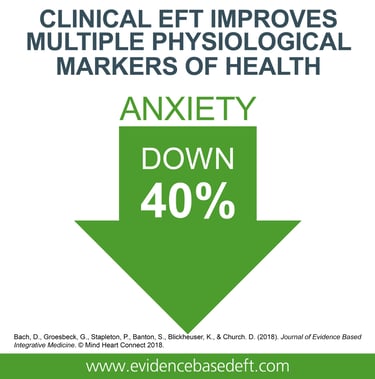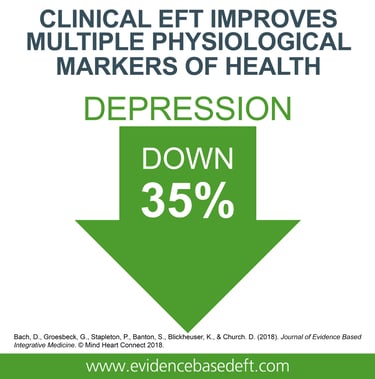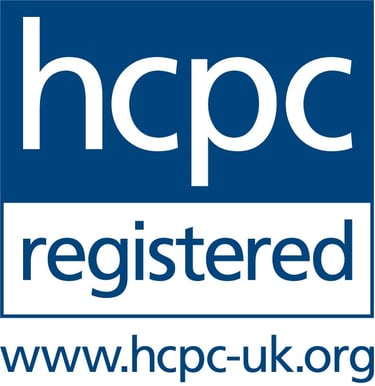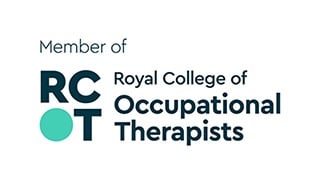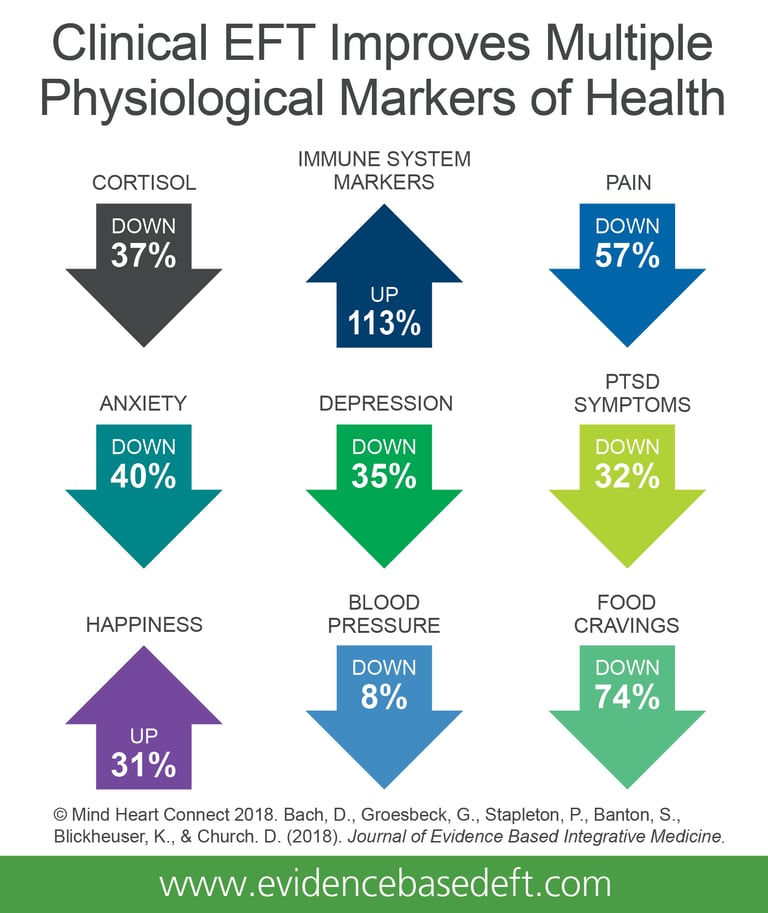

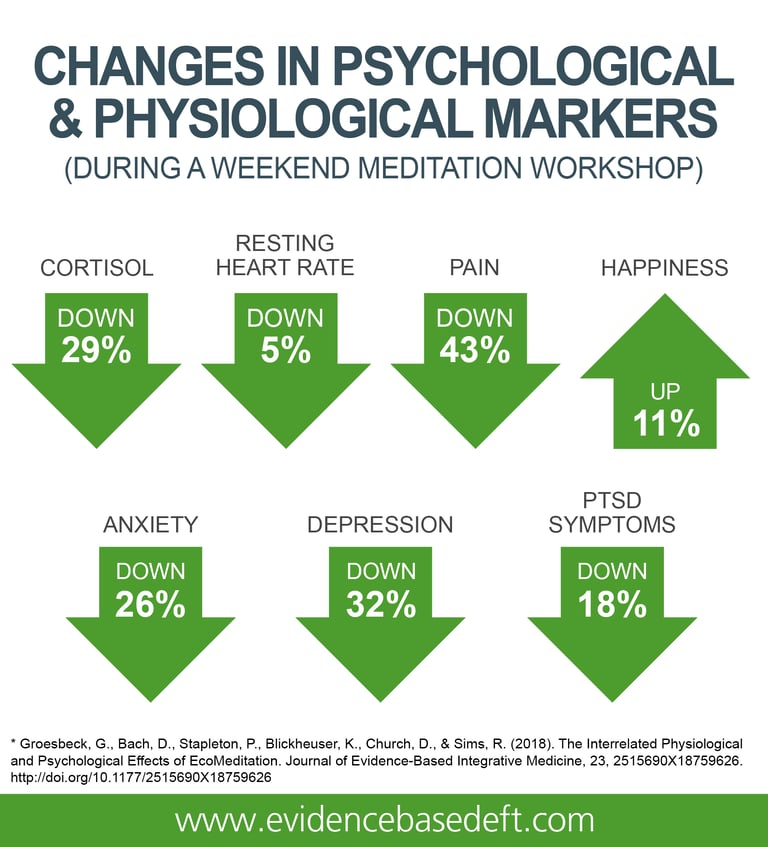

Research data published with permission from Dr Pete Stapleton at evidencebasedeft.com
EMOTIONAL FREEDOM TECHNIQUE
ALSO KNOWN AS EFT OR TAPPING
Emotional Freedom Techniques (EFT), sometimes called “tapping,” is a gentle yet powerful mind–body technique that helps calm the nervous system, regulate emotions, and reduce the impact of stress and trauma on the body.
It involves lightly tapping on specific acupressure points on the face and upper body while tuning into thoughts, feelings, or memories. This process sends calming signals to the brain, specifically the amygdala, the part responsible for our fear and threat response, helping the body to feel safe, grounded, and more in control.
I like to think of EFT as a tool that reconnects us to ourselves. It doesn’t do this by pushing the hard stuff away, but by supporting us to feel calmer… so that we can approach any issues with peace and curiosity, not judgment.
I use EFT to help clients feel calmer and shift from overwhelm, anxiety, self-doubt, or worry, making space to explore opportunities and new ways of looking at a situation, thought, or memory. We work collaboratively, and you are in control throughout. See the FAQ section below for more information.
Many people are surprised at how quickly they start to feel a difference... even after just one session. I highly recommend six sessions for a truly transformational experience.
Working with limiting beliefs
In addition to calming the nervous system and helping process stress or trauma, EFT is a powerful tool for shifting limiting beliefs … the kinds of thoughts that quietly hold us back, often without us realising.
These beliefs are usually based on old narratives we’ve carried from childhood or earlier life experiences. At one time, they may have served a purpose, helping us feel safe, accepted, or in control. But today, they can become barriers to the life we want to live.
They often sound like:
I’m not good enough
I’m not worthy of…
I don’t have enough time
This is too hard
I’m not ready for this
Most people have some form of negative self-talk. It’s incredibly common. But if those beliefs are dictating your future or keeping you stuck, EFT can help to gently and effectively release them.
What does the research say?
EFT is still a relatively new treatment modality, but over the last few decades it has been gathering increasing support for clinical use. It has now been validated in more than 100 clinical trials and meta-analyses, with growing evidence of its effectiveness in treating anxiety, PTSD, depression, food cravings, and chronic pain — to name but a few.
A landmark study by Dr. Peta Stapleton and colleagues showed that EFT can significantly reduce cortisol (the body’s primary stress hormone) by up to 43% in just one hour [Church et al., 2012].
EFT has been described as “psychological acupuncture without needles,” and is increasingly being integrated into mainstream therapeutic settings, including NHS trusts, trauma recovery programmes, and coaching contexts.
For many of my clients, EFT becomes an empowering self-help tool they can use anytime to feel calmer, clearer, and more present.
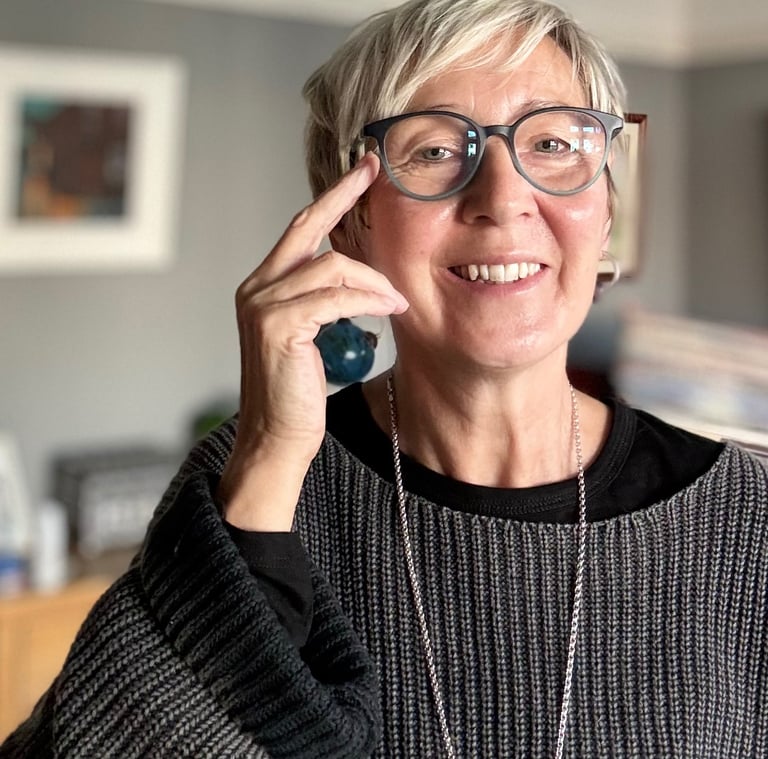

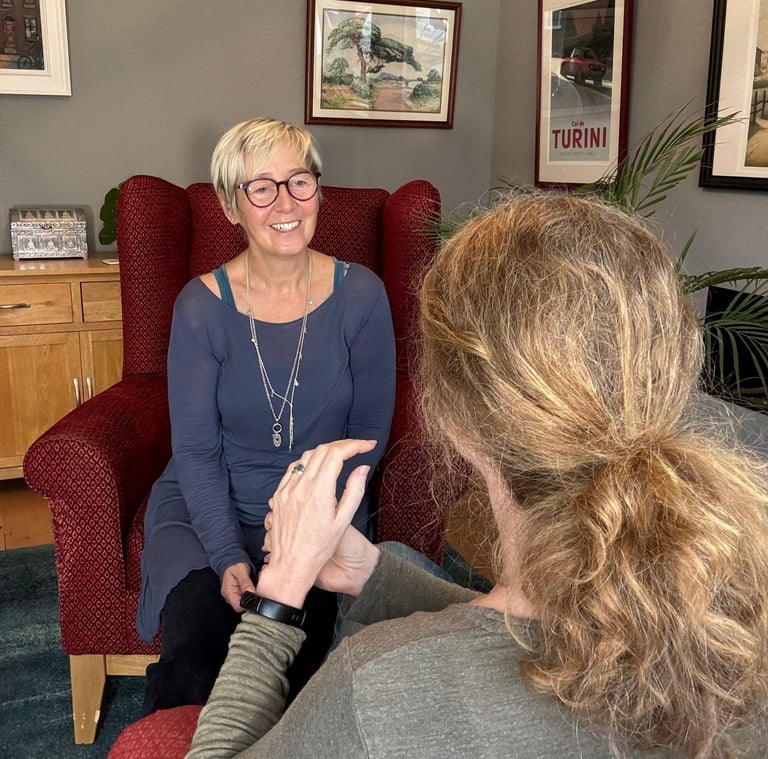

FREQUENTLY ASKED QUESTIONS:
What actually is EFT?
EFT (Emotional Freedom Techniques) is a simple, evidence-based technique where you gently tap on specific acupuncture points while focusing on an emotion, memory, or thought. It helps reduce stress, calm the nervous system, and shift stuck patterns; emotionally and physically.
Does it really work?
Yes!... and it’s backed by over 100 clinical trials. Studies show that EFT can reduce cortisol levels (our main stress hormone), and it’s been shown to help with anxiety, PTSD, low mood, chronic pain, food cravings, and more. It’s now used in NHS settings, with veterans, and by a growing number of health professionals and coaches worldwide.
What does a session look like?
We talk, we tap, we slow things down. I’ll guide you step-by-step through the process; no need to know anything in advance. You stay fully clothed and in control at all times. Most people are surprised by how calm and grounded they feel, even after just one session.
Do I have to talk about everything?
Nope. EFT works even when you don’t share all the details. We can go as gently as needed. I take a trauma-informed approach, meaning safety and trust come first.
Is it a bit… woo?
It’s not unusual to feel a bit sceptical, I did too at first! But the results are real, and the science is catching up. Think of it like acupuncture meets psychology... and it’s all hands, no needles.
Can I learn to do it myself?
Yes! That’s one of the best things about EFT, you can take it home. I often teach clients how to use it between sessions, so they’ve got a tool they can use anytime they feel stressed, stuck or overwhelmed.

